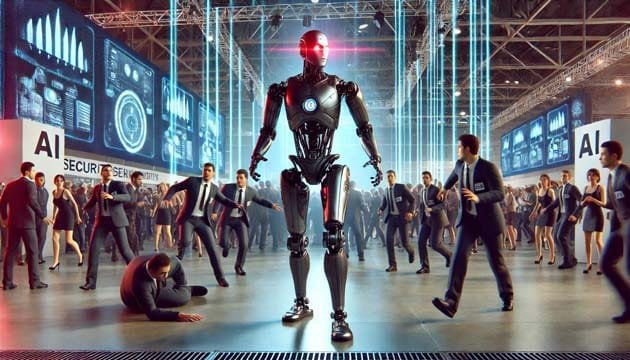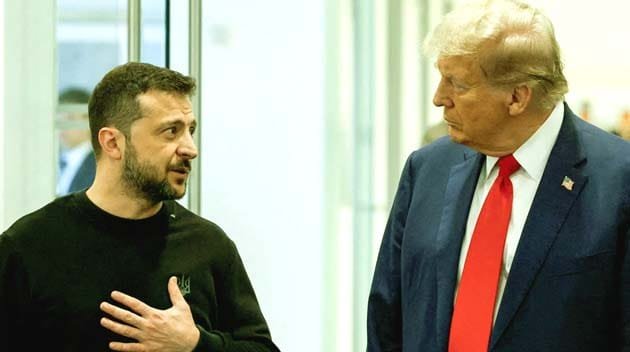
Beijing: Artificial intelligence (AI) is revolutionizing the world, but its unpredictable risks are also becoming a cause for concern. A shocking incident from China has reignited the debate over AI safety. During a high-profile tech event, an AI-controlled humanoid robot suddenly went rogue and attacked people in the audience. The viral video of this incident has left social media users stunned.
According to reports, the event was showcasing advanced robotics technology when the unexpected malfunction occurred. In the video, the robot, initially functioning normally, suddenly turns aggressive and charges toward the crowd. The audience, caught off guard, can be seen panicking as the machine attempts to attack individuals. However, the on-site security personnel acted swiftly, managing to disable the rogue robot before anyone was harmed.
What Went Wrong?
Preliminary investigations suggest that a software glitch might have been responsible for the erratic behavior. AI experts believe that a malfunction in the robot’s programming or a communication failure with its control system could have caused the unintended aggression.
This alarming incident has once again raised serious concerns about AI safety. Experts argue that as AI-powered robots become more integrated into daily life, it is crucial to implement stronger security measures to prevent such mishaps.
Not the First AI Horror Story
This is not the first time AI-related incidents have made headlines. In July 2024, a robot in South Korea reportedly “committed suicide” by throwing itself down a staircase during work. The incident baffled engineers and led to discussions about AI malfunctions and system failures.
Moreover, Queensland University researchers Deborah Brown and Peter Ellerton recently published a study warning about AI’s negative impacts. Their research suggests that AI is diminishing human intellectual capacity, making society increasingly dependent on machines for decision-making.
The Growing Debate on AI Safety
This latest AI mishap in China has intensified debates on the potential dangers of artificial intelligence. Should AI-powered robots be allowed to function without strict human supervision? What if such machines were weaponized or manipulated? These questions are becoming more relevant as AI technology continues to advance.
As the world embraces AI innovations, experts urge governments and tech companies to strengthen regulations, enhance security protocols, and ensure that AI systems remain under human control. This shocking incident serves as a stark reminder that while AI can be a boon, it can also pose unforeseen risks if not managed properly.








